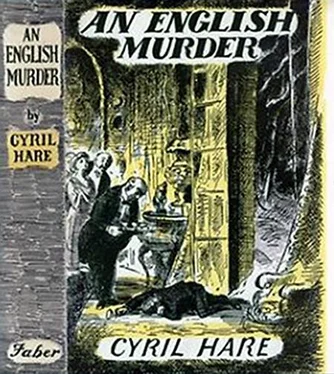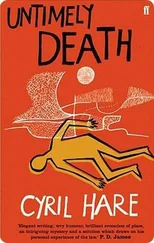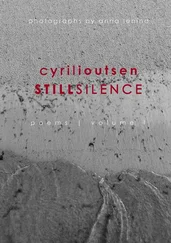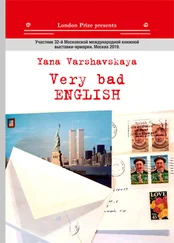"Provided you do not try to take any part in the interview, sir, I can agree to that."
"I am very much obliged. It puzzles me to think what interest the good Briggs's daughter should have to seek to poison Lady Camilla."
"Motive enough," grunted Julius. "Two women and one man." He rose to his feet. "I'm going up to my room," he announced.
Rogers looked troubled.
"I am not sure, Sir Julius, that I ought to allow you——" he began.
"—to get out of your sight, you mean? I'll take care of myself. I'll lock my door behind me." And before the sergeant could intervene he was gone.
"Two women and one man," murmured Dr. Bottwink, as the door closed behind him. "That is a complication, certainly. I admit that I had not envisaged that. Do you agree with that theory, Sergeant Rogers?"
Rogers looked more exhausted than ever as he replied, "I am not now concerned with theories, sir. My function is simply to assemble all the facts that come under my notice and hand them over to the proper quarter."
"Ah, facts, yes! Perhaps that is the better course—if you can keep to it. Myself, I find it impossible to avoid ratiocination, and that is tiresome, particularly when it leads one to absurd conclusions. But speaking of facts, there was one small fact about Mrs. Carstairs which you did not mention just now in your admirable résumé of the matter."
"Yes?"
"I dare say it is quite without significance, but did you observe that her shoes were wet?"
"I did. There were traces on the carpet which indicated that she had been to the french window in her room and stepped out on to the balcony for a moment. There is a great deal of melting snow there still."
"I am obliged. You have established the fact that explains the condition, though not the reason that explains the fact. That you leave to others, as is proper. There is much to be said for the principle of the division of labour, is there not?"
The question did not seem to the sergeant to call for an answer, and nothing further was said between them until a few moments later Susan came into the room.
"You wanted to see me?" she said curtly.
"I did, yes. Won't you sit down, Mrs. Warbeck?"
" Lieber Gott! " exclaimed Dr. Bottwink.
"Dr. Bottwink," said Rogers severely, "if you are going to remain here, you must not interrupt."
"I apologize deeply, Sergeant. It will not occur again, I promise you."
Rogers turned again to Susan.
"I understand that you were in the kitchen just now when your father was making tea for Lady Camilla Prendergast?" he said.
"That's right." Susan looked genuinely puzzled, but her eyes were wary and defiant.
"He says that you helped him to make the tea. Is that so?"
"I filled the pot from the kettle, that's all."
" Was that all?"
"Yes, of course it was. The kettle was boiling and Dad was cutting bread and butter and I said, 'Shall I fill the pot?' and he said, 'Yes', and I did."
There was a long, uncomfortable pause, and then Susan added in a voice that had the edge of fear to it, "There was nothing wrong with the tea, was there?"
"There was poison in it," said Rogers briefly.
Her hand flew up to her mouth as though to suppress a scream.
"Poison?" she murmured. "In the tea what Dad made?"
"In the tea you made together."
"But I never did anything, I tell you, except put the boiling water in when Dad told me. What should I want to poison anyone for?"
"You knew that tea was for Lady Camilla, didn't you?"
"Has anything happened to her?" asked Susan swiftly.
"Nothing has happened to Lady Camilla. You know quite well that she did not drink the tea. Mrs. Carstairs did."
"What's happened to her ?" The girl's face had become cold and sullen again.
"Mrs. Carstairs is dead."
"Well, that's not my fault, is it?" She displayed no more emotion now than if she had been unjustly rebuked for breaking a piece of china.
"What were you doing outside Lady Camilla's door?" asked Rogers suddenly.
"I went up there because I wanted to talk to her."
"What should you want to talk to Lady Camilla about?"
"We'd had some words this morning when I went to sit in his lordship's room and I—well——"
"You wanted to have some more words with her, was that it?"
Susan shrugged her shoulders. "It doesn't matter now," she said. "I didn't see her, anyway."
"You went up there to see whether she had drunk the tea, didn't you?"
"I tell you, I didn't know anything about the tea," Susan repeated angrily. "When I got there, there was Mrs. Carstairs just coming out. She said her ladyship was asleep and not to be disturbed. We had some words, and then she took the tea away to her room and I went off to mine. That's all."
"You made no attempt to stop Mrs. Carstairs taking the tea which you knew was intended for Lady Camilla?"
"Why should I? I tell you I didn't know——"
"Very well, Mrs. Warbeck. You needn't say it again. I don't think I need trouble you any further now. You understand that you may be asked questions about this later on, by other people?"
"They'll only get the same answers," said Susan, and walked defiantly to the door.
When she had gone Dr. Bottwink said, "I apologize, Sergeant, for my outburst just now, but I was taken aback. This young person is the widow of the Honourable Mr. Warbeck, I suppose?"
Rogers nodded.
"That is certainly a fact to be taken into consideration, along with the others. How long have you known this, may I ask?" "Only since this afternoon."
"So! And the others, they knew of it also?"
"Apart from Briggs, nobody knew it until today. Sir Julius learned of it only after Lord Warbeck's death."
"And the ladies?"
"Only Lady Camilla was told. That was just before lunch."
"I see." The historian remained sunk in thought for a full minute before he spoke again, and then it was to himself, and with apparent irrelevance. "The vocabulary of the uneducated classes is very limited," he murmured. "Unfortunately, it is also lacking in precision. Otherwise, there would be here a clue that might, perhaps, merit investigation. Yet, even so, I do not see that it will materially assist."
"What were you saying?" asked Rogers.
"I? Nothing. I was, as I believe the expression is, speaking out of my turn. You have now all the facts you sought, Sergeant?"
"I think so."
"So be it." Dr. Bottwink yawned prodigiously, and turned to stare into the fire.
There was the sound of heavy footsteps hurrying outside. The door burst open and Julius appeared. He was pink with excitement and his fatigue seemed for the time being to have vanished.
"Rogers!" he exclaimed. "Rogers! Look at this, man!"
In his fat fist he held a small, dark object which he waved triumphantly to and fro.
"In my wardrobe!" he panted. "In the drawer where I keep my handkerchiefs! I went to get myself a clean one just now, and when I took it away, there was this, lying just underneath!"
With the air of a card-player producing the ace of trumps, he set down on the library table a little blue glass bottle, prominently labelled "Poison".
"What d'you think of that?" asked Sir Julius.
Chapter XVII
"Words, words.…"
Sergeant Rogers picked the bottle up and held it against the light.
"Empty, I see," he said, and put it down again. His face was as expressionless as ever.
"Well?" said Julius, eagerly. "Isn't that the thing you are looking for?"
"It seems so, Sir Julius. Briggs will be able to identify it, no doubt." His tone was unenthusiastic, almost uninterested. "And it was in my wardrobe, of all places! How the devil did it get there, do you suppose?"
"Well, sir, your room is readily accessible from the stairs. Once on the landing, it is the first door one comes to."
Читать дальше












